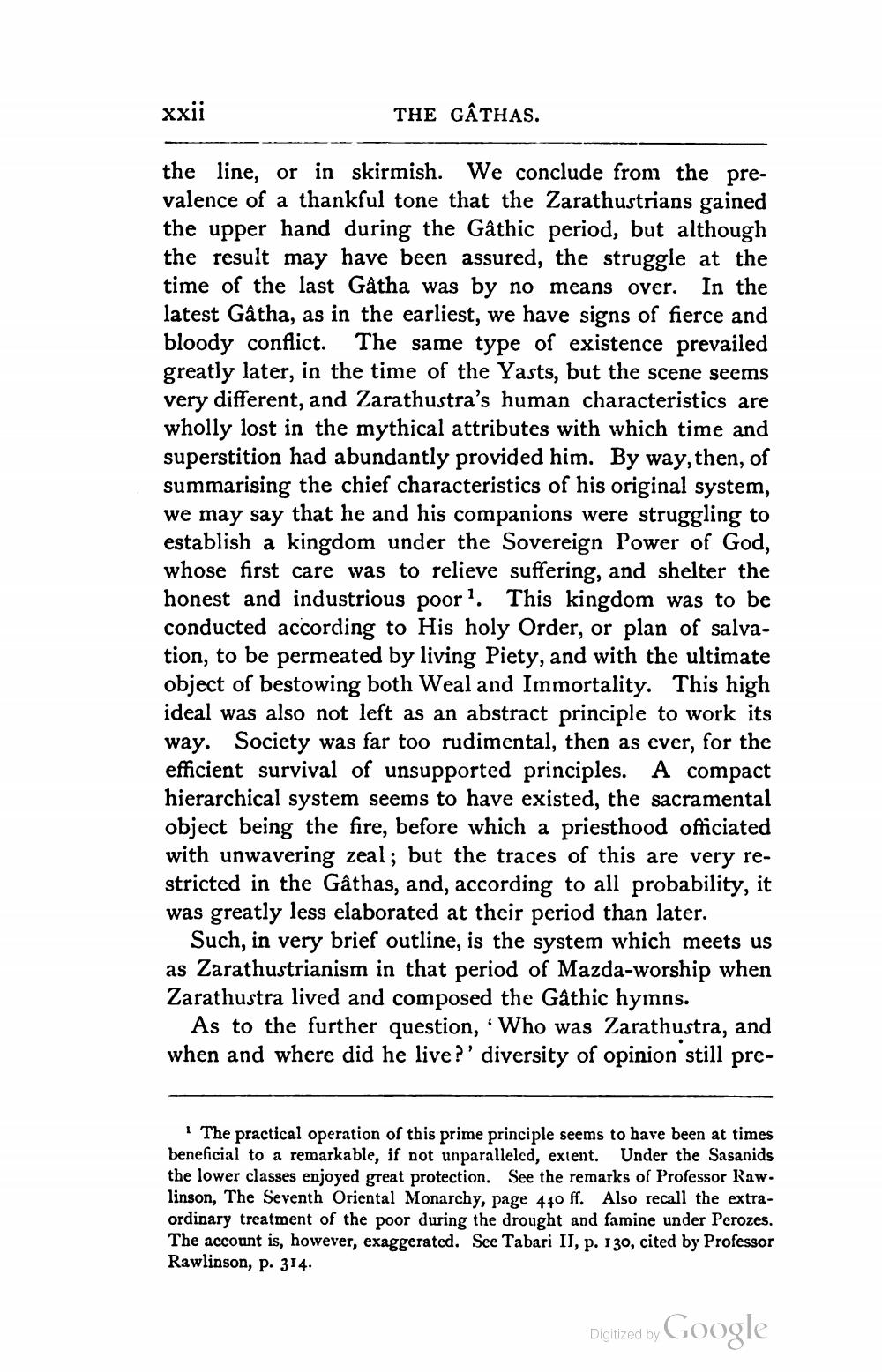________________
xxii
THE GÂTHAS.
the line, or in skirmish. We conclude from the prevalence of a thankful tone that the Zarathustrians gained the upper hand during the Gâthic period, but although the result may have been assured, the struggle at the time of the last Gatha was by no means over. In the latest Gâtha, as in the earliest, we have signs of fierce and bloody conflict. The same type of existence prevailed greatly later, in the time of the Yasts, but the scene seems very different, and Zarathustra's human characteristics are wholly lost in the mythical attributes with which time and superstition had abundantly provided him. By way, then, of summarising the chief characteristics of his original system, we may say that he and his companions were struggling to establish a kingdom under the Sovereign Power of God, whose first care was to relieve suffering, and shelter the honest and industrious poor. This kingdom was to be conducted according to His holy Order, or plan of salvation, to be permeated by living Piety, and with the ultimate object of bestowing both Weal and Immortality. This high ideal was also not left as an abstract principle to work its way. Society was far too rudimental, then as ever, for the efficient survival of unsupported principles. A compact hierarchical system seems to have existed, the sacramental object being the fire, before which a priesthood officiated with unwavering zeal; but the traces of this are very restricted in the Gâthas, and, according to all probability, it was greatly less elaborated at their period than later.
Such, in very brief outline, is the system which meets us as Zarathustrianism in that period of Mazda-worship when Zarathustra lived and composed the Gâthic hymns.
As to the further question, 'Who was Zarathustra, and when and where did he live?' diversity of opinion still pre
The practical operation of this prime principle seems to have been at times beneficial to a remarkable, if not unparalleled, extent. Under the Sasanids the lower classes enjoyed great protection. See the remarks of Professor Raw. linson, The Seventh Oriental Monarchy, page 440 ff. Also recall the extraordinary treatment of the poor during the drought and famine under Perozes. The account is, however, exaggerated. See Tabari II, p. 130, cited by Professor Rawlinson, p. 314.
Digitized by Google
Digitized by




